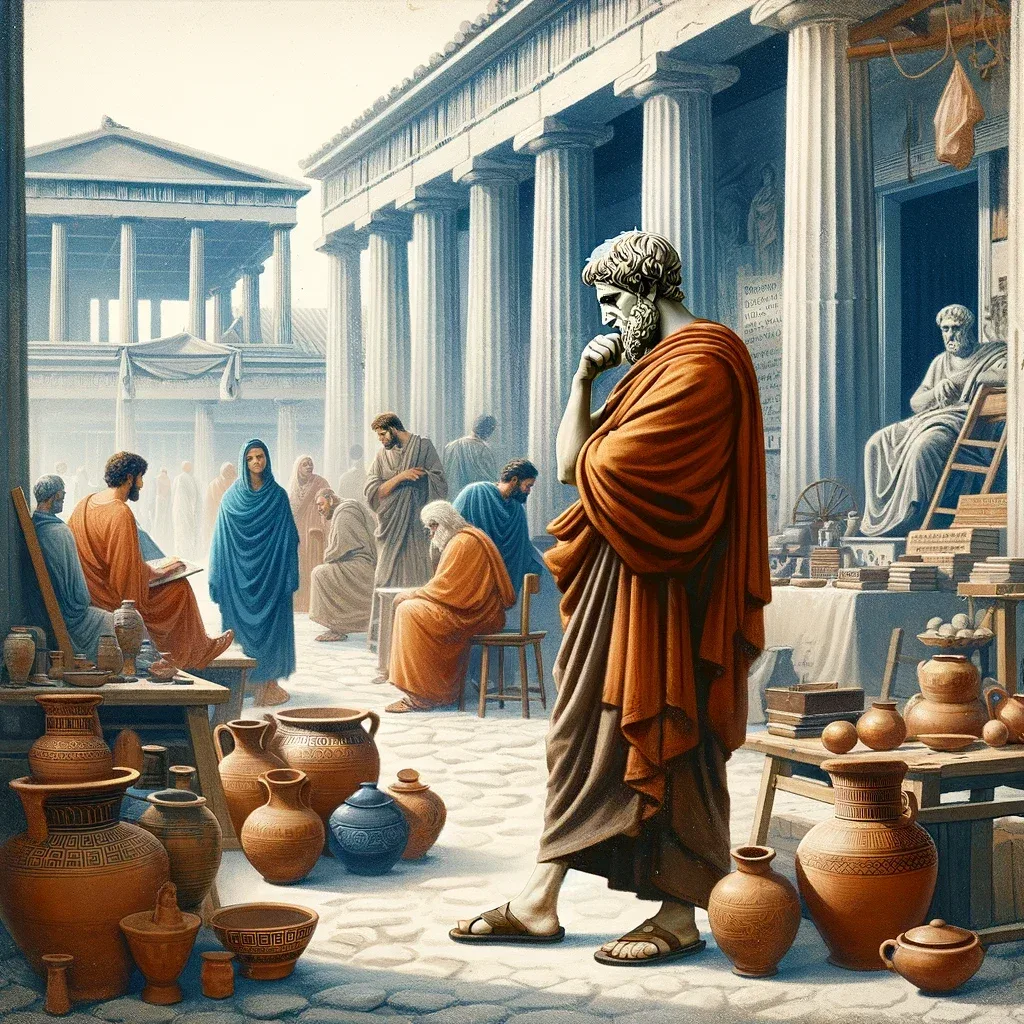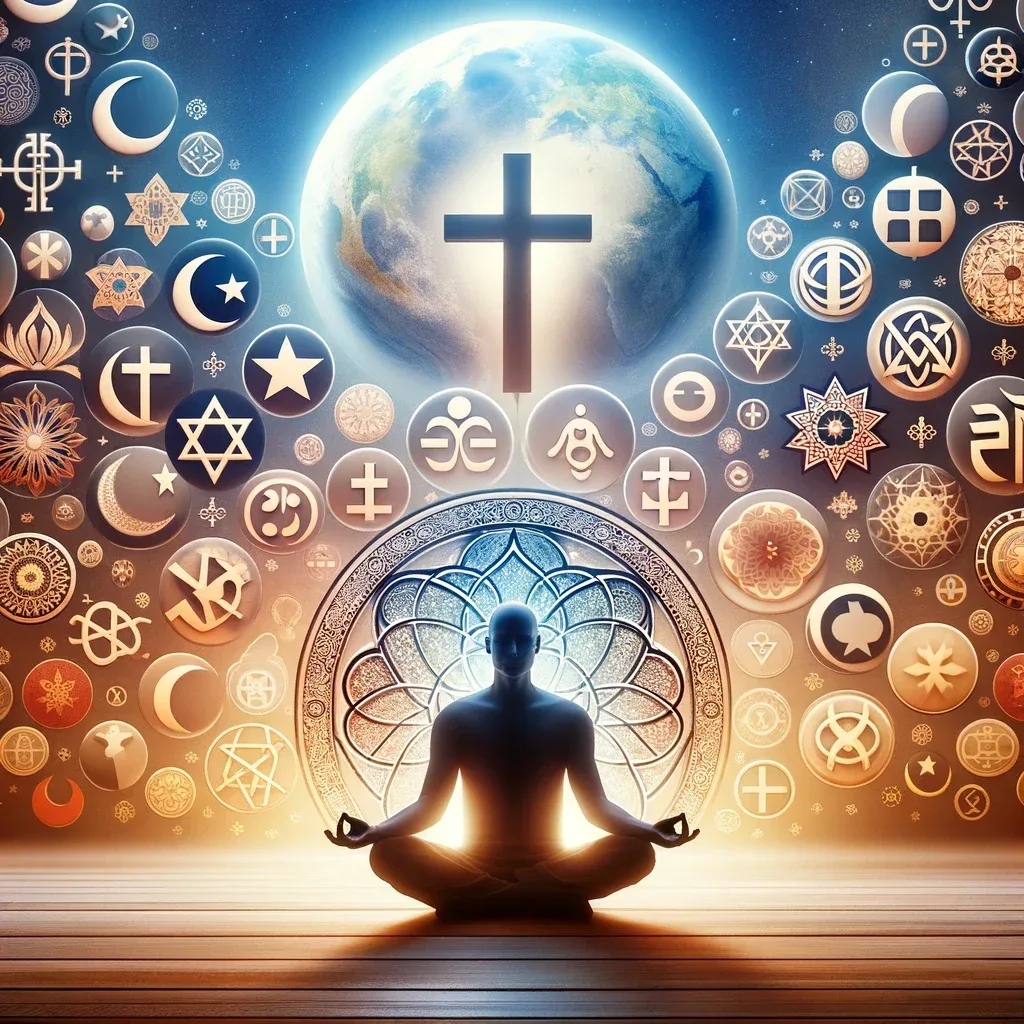The search for well-being, understanding oneself and the world around is a journey as old as humanity. In this search, three distinct but often interconnected areas emerge: self-help, philosophy and religion. This article explores the intersections and similarities between these three spheres, emphasizing how they contribute to personal and spiritual development. By addressing topics such as self-knowledge, ethics and transcendence, we will uncover how self-help, philosophy and religion intertwine, offering paths to understanding and personal growth.

Self-knowledge: The Cornerstone

Self-help and the Path to Self-knowledge
The self-help movement, which encompasses books, lectures and workshops, focuses on promoting self-knowledge as a means to improve quality of life. This search for understanding oneself is fundamental to overcoming personal challenges and achieving goals. Self-help guides individuals to reflect on their attitudes, emotions and behaviors, encouraging self-discovery and self-acceptance.
Philosophy: Questioning Human Existence
In philosophy, self-knowledge is also a central theme. Philosophers like Socrates, with the maxim “Know thyself”, emphasize the importance of introspection and critical reflection on one's own existence. Philosophy encourages us to question not only the 'self', but also the world and human relationships, seeking to understand the nature of reality, morality and life.
Religion: The Inner Search for Divine Connection
Religions around the world often emphasize the importance of self-knowledge as a path to connecting with the divine. Many religious traditions encourage meditation, prayer, and other spiritual practices that promote an inner journey of self-discovery and enlightenment.
Ethics and Morals: Living a Meaningful Life

Self-Help: Developing Personal and Interpersonal Skills
Self-help literature often addresses topics related to ethics and morals, focusing on developing interpersonal skills such as empathy and effective communication. These aspects are considered essential for building healthy relationships and for success in the work environment and in personal life.
Philosophy: The Debate on Morality and Justice
Philosophy is intensely concerned with ethical and moral issues. From the ancient Greek philosophers to contemporary thinkers, philosophy has been a fertile ground for debates about what constitutes a morally correct and just life. Issues such as justice, virtue and the common good are central in philosophical discussions.
Religion: Moral Principles and Ethical Behavior
Religion often offers a set of moral principles and ethical guidelines for its followers. These guidelines are seen as fundamental to living a life aligned with religious teachings and beliefs. Many religious traditions emphasize values such as compassion, forgiveness, and charity.
Transcendence: Beyond the Physical Self

Self-Help: Overcoming Personal Limits
Self-help resources often encourage individuals to transcend personal limitations, promoting the idea that it is possible to achieve a better version of themselves. This quest for growth and overcoming is a vital aspect of the self-help journey.
Philosophy: Exploring the Meaning of Life and Existence
Philosophy often transcends the material and tangible, exploring abstract concepts such as the meaning of
life, the existence of God and the nature of the universe. This search for understanding issues that go beyond the physical is a fundamental characteristic of philosophy.
Religion: The Connection with the Divine
Religion offers a transcendental perspective, focusing on connection with a spiritual or divine reality. This search for a deeper spiritual experience is central to many religious traditions, which see transcendence as a path to enlightenment and salvation.
Conclusion
Self-help, philosophy and religion, despite their differences, share many fundamental themes, such as the search for self-knowledge, ethical and moral reflection and transcendence. Each, in its own way, offers paths to personal and spiritual development. By exploring these areas, we can find valuable guidelines and insights for living a fuller, more meaningful life. This interconnection highlights the importance of a holistic approach to personal growth and well-being, integrating different perspectives and wisdom.
FAQ: Self-Help, Philosophy and Religion – Understanding the Connections
This FAQ was designed to clarify common questions about the similarities and intersections between self-help, philosophy and religion. Here, you will find detailed answers to key questions related to these themes, providing deep insights into how these areas connect and contribute to our personal and spiritual development.

1. What is the main similarity between self-help, philosophy and religion?
2. How does self-help contribute to self-knowledge?
3. How does philosophy approach self-knowledge?
4. What is the role of religion in self-knowledge?
5. How does self-help deal with ethical and moral issues?
6. What is philosophy's approach to ethics and morals?
7. How do religions provide guidance on ethics and morality?
8. How does self-help encourage transcendence?
9. How does philosophy explore transcendence?
10. What is religion's view of transcendence?

This FAQ provides a comprehensive understanding of how self-help, philosophy, and religion intertwine and complement each other in the journey of personal and spiritual growth.





